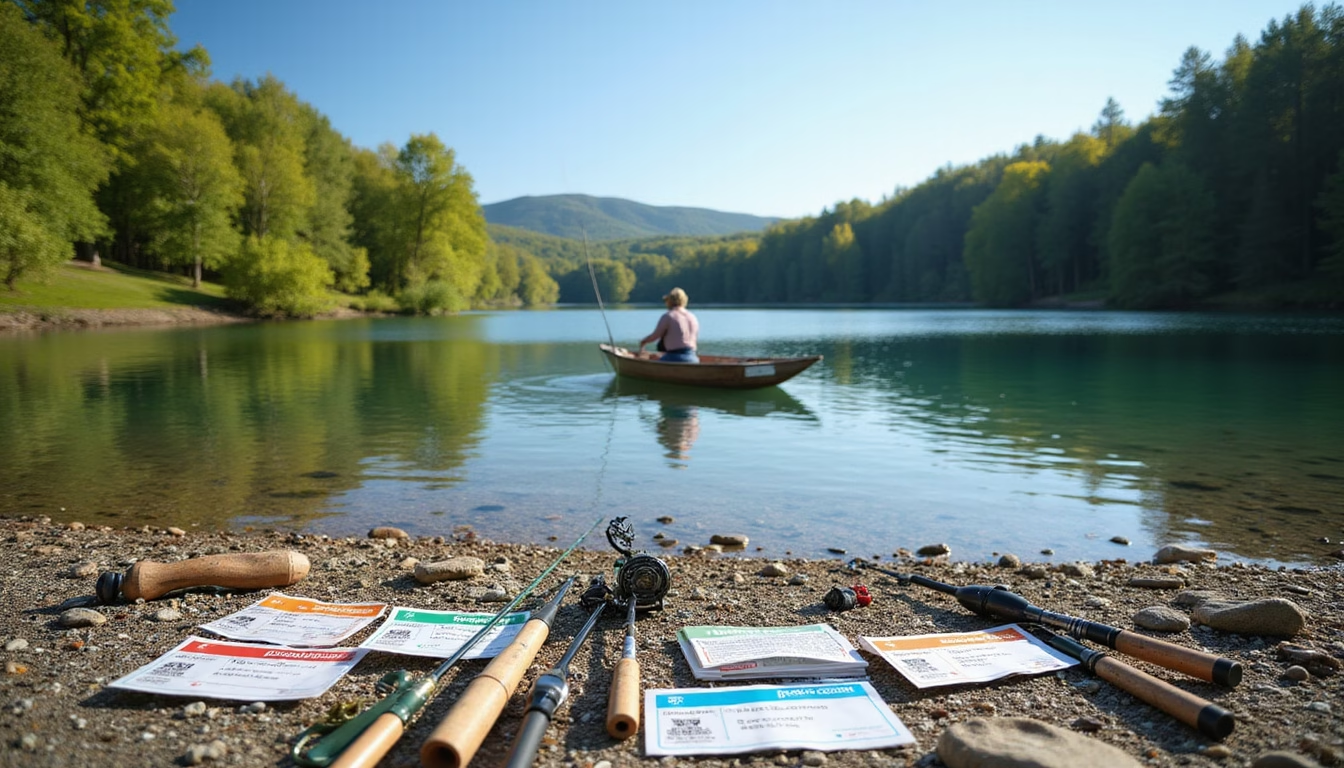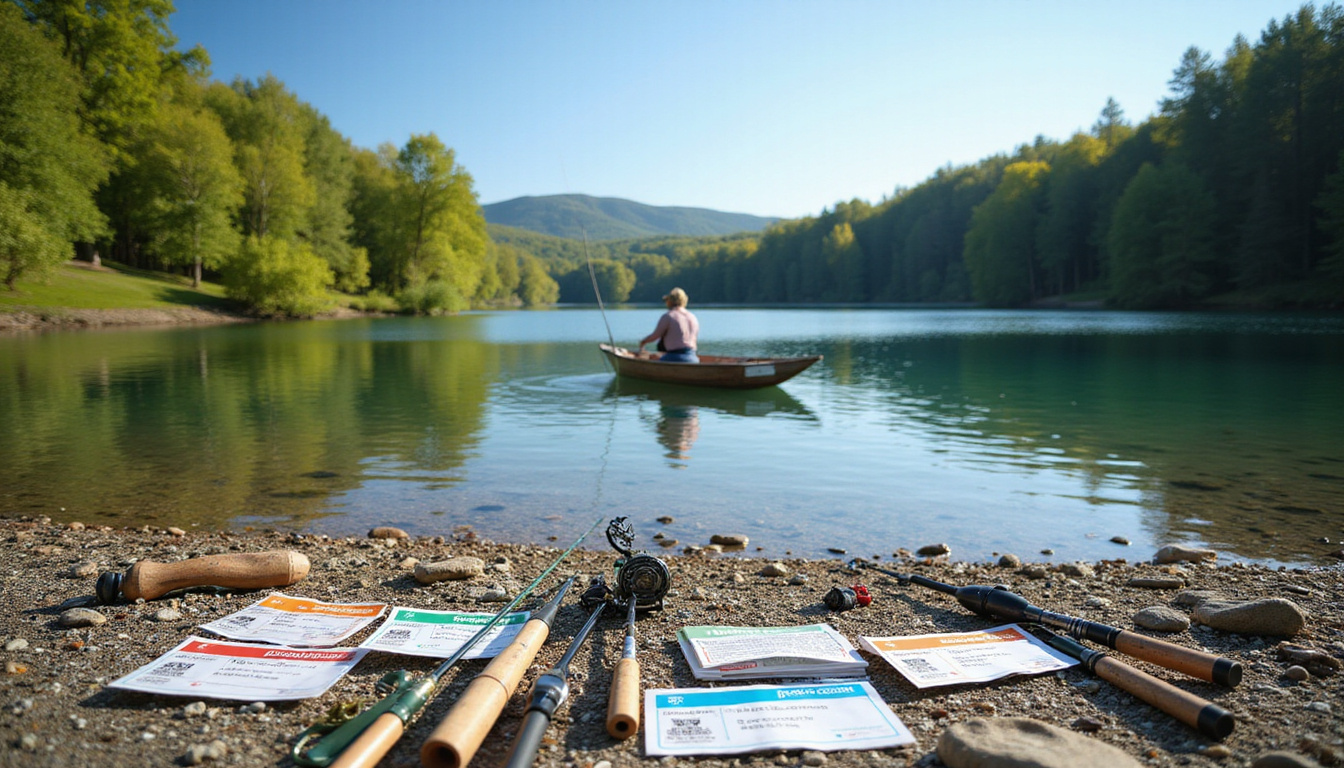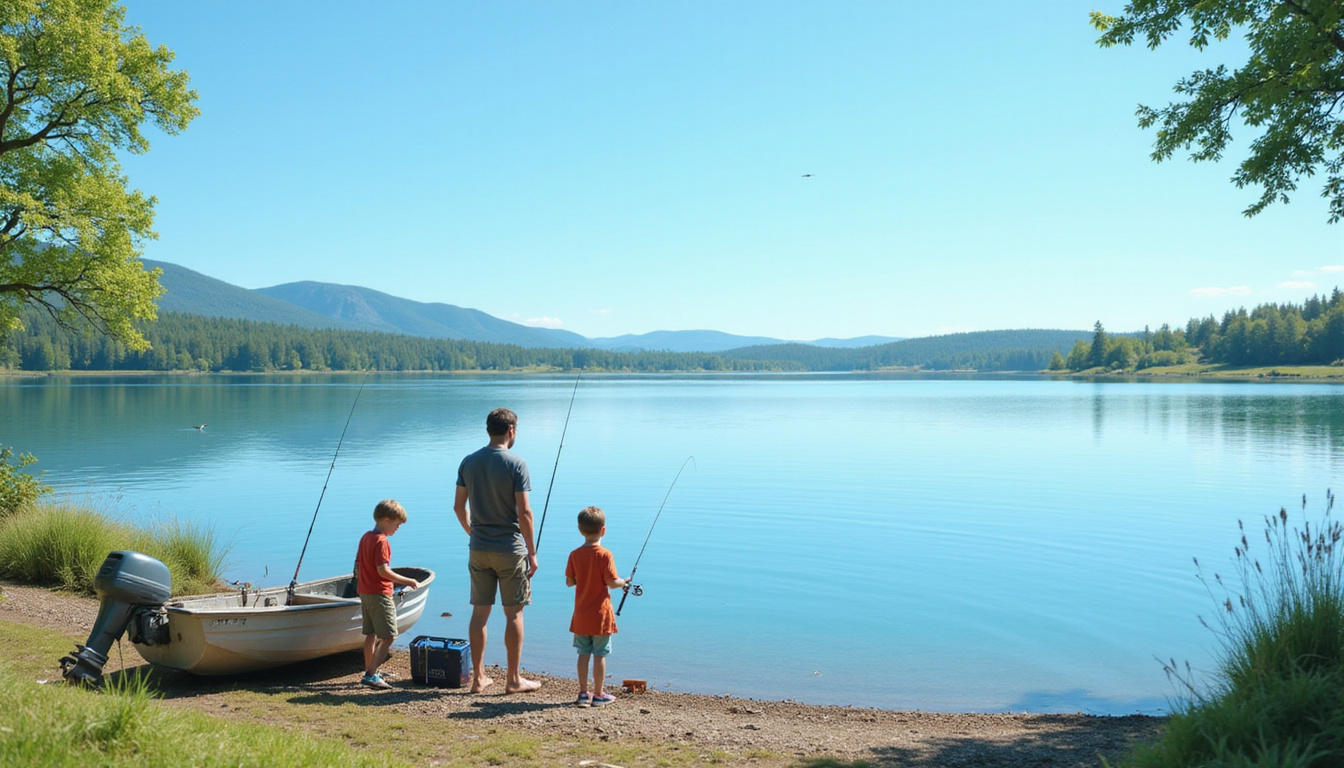
The Ultimate Beginner’s Guide to Navigating Fishing Regulations and License Requirements
On April 3, 2025 by Andy FordFishing is a beloved pastime for many, providing not just a chance to connect with nature, but also the opportunity to unwind and enjoy some quality time with friends and family.
However, before you cast your line, it’s essential to understand the fishing regulations and license requirements that govern this activity.
This article serves as a comprehensive beginner’s guide to fishing regulations and license requirements, helping you navigate the essential rules and regulations to ensure a successful and enjoyable fishing experience.
Mastering Saltwater Fishing: A Complete Guide to Choosing the Right Fishing Line

Key Takeaways
- Understanding fishing regulations is crucial for responsible fishing practices.
- Fishing license requirements vary by region and type of fishing.
- Obtaining a fishing license involves a straightforward, step-by-step process.
- It’s important to stay informed about any changes in fishing regulations.
- Utilizing resources and local agencies can help beginners navigate fishing laws effectively.
Understanding Fishing Regulations: The Basics Every Beginner Should Know
Navigating the waters of fishing can be both thrilling and daunting, especially for newcomers eager to cast their lines.
Understanding fishing regulations is essential for anyone venturing into this enjoyable pastime.
This beginner’s guide to fishing regulations and license requirements lays the foundation for a successful and legal fishing experience.
Each state has its own set of rules, which can include specific seasons, size limits, and catch limits that protect fish populations and their habitats.
Additionally, obtaining the correct fishing license is crucial; many regions require a license to fish in public waterways.
Before you head out to your favorite fishing spot, familiarize yourself with local regulations—this not only increases your chances of a fruitful catch but also helps preserve the environment for future generations to enjoy.
Types of Fishing Licenses: What’s Required in Different Regions
When embarking on your fishing journey, understanding the different types of fishing licenses is essential for compliance with local laws and regulations.
Fishing regulations can vary widely across regions, making it crucial for both novice and experienced anglers to familiarize themselves with the specific requirements for their area.
This beginner’s guide to fishing regulations and license requirements outlines the common types of licenses you might encounter, such as freshwater, saltwater, and special species licenses.
Typically, a standard freshwater fishing license is needed for lakes and rivers, while saltwater fishing may require a different permit, particularly in coastal regions.
Additionally, some jurisdictions offer limited or seasonal licenses for catch-and-release fishing or special events.
To ensure a successful and legal fishing experience, check with your state’s fish and wildlife agency for the latest regulations and to select the right license that fits your fishing activities.
‘The fish in the sea will never be as rare as the fish in your mind.’ – Unknown
Mastering Saltwater Fishing: A Complete Guide to Choosing the Right Fishing Line

How to Obtain Your Fishing License: Step-by-Step Guide
To enjoy a rewarding fishing experience, it’s essential to understand the regulations and obtain your fishing license legally.
This beginner’s guide to fishing regulations and license requirements will help you navigate the process easily.
First, determine the type of fishing you plan to do—saltwater or freshwater—as this affects the license you need.
Next, visit your state’s fish and wildlife agency website to find specific requirements, including age restrictions and residency status.
Most states allow you to apply for your fishing license online, but you can also purchase one at local bait shops or designated government offices.
Ensure you have the necessary documents handy, such as identification and proof of residency.
Additionally, familiarize yourself with local fishing regulations concerning catch limits, seasons, and specific species rules to ensure that your fishing adventure is both enjoyable and compliant with the law.
Follow this step-by-step guide to obtaining your fishing license, and you’ll be well on your way to a successful day on the water.
Staying Updated: Resources for Navigating Changes in Regulations
In the ever-evolving world of fishing, staying informed about the latest regulations and license requirements is crucial for both novice anglers and seasoned fishermen alike.
A comprehensive beginner’s guide to fishing regulations and license requirements can serve as a valuable resource to help you navigate these changes effectively.
Resources such as government websites, local fishing organizations, and fishing forums provide up-to-date information regarding species-specific regulations, seasonal restrictions, and licensing variations by state.
Additionally, mobile apps dedicated to fishing can alert you to any recent updates or changes, ensuring that you remain compliant while enjoying your time on the water.
Embracing these tools not only enhances your fishing experience but also promotes sustainability and conservation efforts within our aquatic ecosystems.
Frequently Asked Questions
What are fishing regulations?
Fishing regulations are laws and guidelines set by authorities that govern how, where, and when fishing can occur.
They include rules about fishing licenses, specific fishing seasons, limits on catch sizes and types, and protected species.
Why do I need a fishing license?
A fishing license is required to fish legally in publicly accessible waters.
It helps manage fish populations, protect ecosystems, and fund conservation efforts.
How do fishing regulations vary by region?
Fishing regulations can differ by country, state, or even local waters, including types of fish that can be caught, specific seasons, and the required licenses.
It’s important to check the regulations for the specific area where you plan to fish.
What is the process for obtaining a fishing license?
To obtain a fishing license, visit your local wildlife agency’s website or office.
You’ll typically need to provide personal information, pay a fee, and sometimes pass a fishing education course, especially for younger anglers.
How can I stay updated on changes in fishing regulations?
You can stay updated on fishing regulations by checking your local fish and wildlife agency’s website, subscribing to newsletters, or following related social media channels.
Also, consider joining local fishing clubs or forums.
100% Free Ai trading Bot Click here for yours!
Archives
Calendar
| S | M | T | W | T | F | S |
|---|---|---|---|---|---|---|
| 1 | 2 | |||||
| 3 | 4 | 5 | 6 | 7 | 8 | 9 |
| 10 | 11 | 12 | 13 | 14 | 15 | 16 |
| 17 | 18 | 19 | 20 | 21 | 22 | 23 |
| 24 | 25 | 26 | 27 | 28 | 29 | 30 |
| 31 | ||||||
